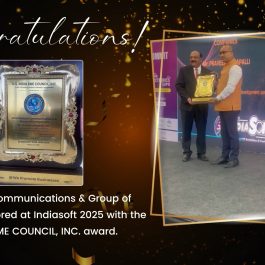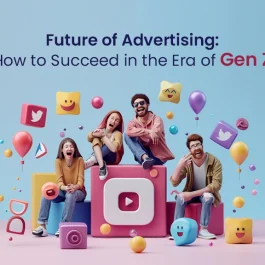5 min read

In today’s digital landscape, the key to a successful online presence lies in not only having a well-designed website but also in strategically distributing your content across various channels. Multichannel content marketing is a powerful strategy that can help expand your website’s reach and impact. In this blog, we’ll explore what multichannel content is, its significance, and how to implement it to boost your online presence effectively.
Table of Contents
Understanding Multichannel Content
Multichannel content refers to the practice of creating and distributing content across multiple online platforms and channels beyond your website. These channels can include social media, email marketing, video-sharing platforms, podcasts, and more. The goal is to meet your audience where they are, rather than expecting them to come to you.
The Significance of Multichannel Content
- Increased Visibility: By leveraging multiple channels, your content promotion can reach a broader audience. Different platforms attract different user demographics, allowing you to tap into diverse markets.
- Improved Engagement: Multichannel content encourages audience engagement. It provides users with content in various formats and allows them to interact with your brand through their preferred channel.
- Enhanced Brand Consistency: A consistent message and brand image across various channels can strengthen your brand identity and build trust with your audience.
- Adaptability: Multichannel content can adapt to evolving user preferences and platform trends. If one channel becomes less effective, you can shift your focus to others.
Strategies for Effective Multichannel Content Marketing
- Know Your Audience: Understand your target audience’s preferences and habits. This knowledge will guide you in selecting the most relevant channels and crafting content that resonates with them.
- Diversify Content Formats: Create content in various formats, including blog posts, videos, infographics, podcasts, and social media posts. Different formats appeal to different users, increasing your chances of engagement.
- Leverage Social Media: Social media platforms are excellent channels for distributing content. Share your blog posts, videos, and other content on platforms like Facebook, Twitter, LinkedIn, Instagram, and Pinterest to reach a wider audience.
- Email Marketing: Use email to send newsletters and updates to your subscribers. Email is a direct channel to your audience and can help nurture leads and maintain customer relationships.
- Video Marketing: video content creation is one of the most engaging forms of content development service. Consider creating educational, entertaining, or informative videos and sharing them on platforms like YouTube and Vimeo.
- Podcasting: Podcasts have gained popularity as an audio content medium. Creating a podcast series can help you connect with an audience interested in audio content.
- Repurpose Content: Don’t hesitate to repurpose content across different channels. For example, you can turn a blog post into a video, an infographic, or social media content marketing.
- Consistent Branding: Maintain a consistent brand identity, voice, and style across all channels. This creates a seamless user experience and builds brand recognition.
- Track and Analyze: Use analytics tools to monitor the performance of your content marketing solutions across different channels. This data can help you refine your strategy and focus on the most effective channels.
The Challenges of Multichannel Marketing
While employing a multichannel marketing strategy has numerous advantages, not all businesses should use it. Prior to implementing this strategy within your company, make plans to address the following obstacles.
Effective Administration
Marketers must be prepared to commit more time, money, and resources to developing strategies that are ideal for each channel since managing more channels requires more work. Furthermore, many businesses have highly compartmentalized departments with little to no data exchange or cross-functional communication. It could be challenging to decide how to manage your campaign optimally without the combined input of other teams, such as finance or operations, since they may be more knowledgeable about some aspects of consumer behavior than marketing is.
Appropriate Marketing Credit
When businesses implement a multichannel marketing strategy, the significance of precise marketing attribution becomes abundantly evident. It becomes more challenging to identify which message from a growing number of channels caused a particular response from a customer.
A recent study revealed that 68 percent of marketers using an attribution strategy employed Media Mix Modeling (MMM), while 49 percent used Multi-Touch Attribution (MTA). This indicates that a large number of marketers have already adopted some form of attribution model. However, none of these models can provide a complete picture of offline and online campaigns; MMM, in particular, is not appropriate for timely, predictive marketing analytics that can be used to improve and adjust ongoing campaigns.
Marketers should instead concentrate on attribution models that offer real-time insights on impressions and engagement across online and offline channels, like Unified Marketing Measurement.
Read More: Interactive Content Marketing

Making Use of Marketing Analytics
Marketing departments think they understand analytics very well, but the process of developing a multichannel campaign can reveal inappropriate or inefficient strategies. Of the marketers surveyed, 55% thought it was hard to add customer data to pre-existing customer profiles, and 37% thought it was hard to leverage customer data when developing multichannel campaigns. Data quality is another issue that worries 65% of marketers. Any team that puts in the time and money required to launch a multichannel campaign would undoubtedly be shocked to learn about these pitfalls.
The information indicates that the organization’s lack of experience is the cause of these problems. Among marketers, 56% said that filling positions involving marketing analytics was at least somewhat difficult, and 18% said it was the hardest thing they had to do in 2019. To acquire these skills, marketers must either go through training or make use of an analytics platform, which greatly simplifies data analysis for non-experts.
Staying Ahead of Innovations
Marketers were learning how to maximize Facebook ad placements ten years ago. They felt the immediate need to increase the reach of their marketing to include Instagram, Twitter, LinkedIn, Snapchat, TikTok, and more in a matter of short years. Every year, new social media platforms emerge, making it more difficult for marketers to stay up to date with them. Examples of these innovations include location-based marketing and smart TV. In order to maintain a competitive edge, marketers need to continuously investigate emerging channels and create plans that optimize the impact of their messaging on those platforms.
Concentrating Messages
Consumers must sense that your message aligns with their values in addition to just seeing it. Because of this, carefully crafting messages is crucial, and multichannel marketing emphasizes the significance of well-targeted messages even more. Multichannel messaging ought to take into account the channels that a customer frequently uses as well as their demographic, psychographic, and past purchasing behavior. This necessitates a comprehensive, tailored marketing strategy.
Conclusion
Multichannel content marketing is a powerful strategy that allows you to expand your website’s reach and impact. By strategically distributing your content across various online platforms, you can reach a broader audience, increase engagement, and build a consistent brand presence. It’s essential to understand your target audience’s preferences, diversify your content formats, and track performance to make informed decisions. Embrace the multichannel approach, and your website will thrive in today’s dynamic digital landscape, making a more significant impact on your audience.
Published: November 15th, 2023








